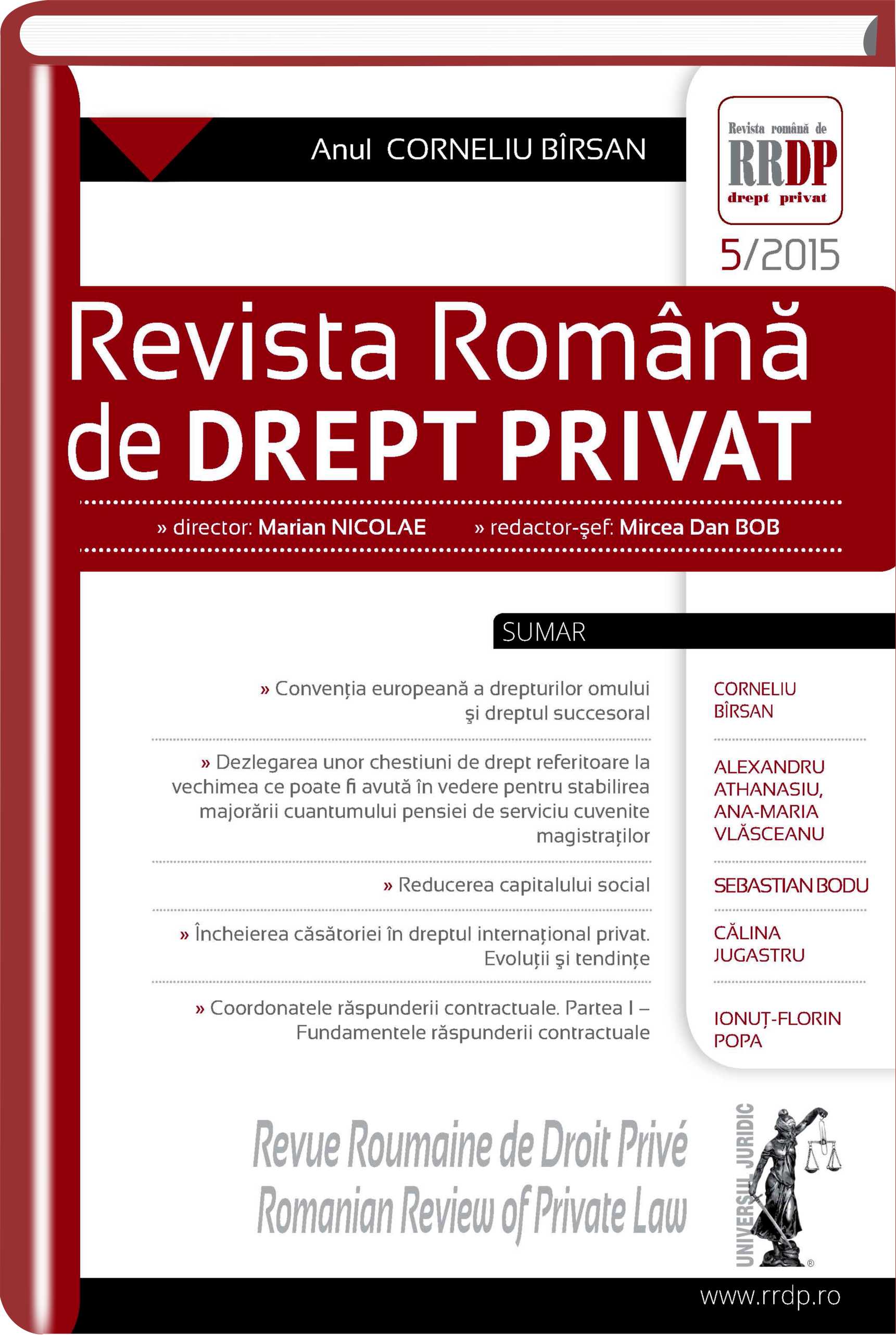Convenţia europeană a drepturilor omului şi dreptul succesoral
The European Convention of Human Rights and the law of succession
Author(s): Corneliu BirsanSubject(s): Law, Constitution, Jurisprudence, Civil Law
Published by: Universul Juridic
Keywords: European Convention of Human Rights; law of succession; European Court of Human Rights; right of ownership; discrimination;
Summary/Abstract: The starting point of this study is rather a question: is it possible to establish a relationship between the European Convention of Human Rights (the Convention), a legal instrument of international law and the law of succession, which belongs par excellence to the national legal systems of the Contracting States? Nevertheless, such a relationship exists, as the Convention ensures not only rights to physical integrity, rights of personal freedom, social and political freedoms, freedom of thought, conscience and religion, but also rights which may have very close links with civil law institutions, such as the right to respect for private and family life and the right of ownership, to which the right to a fair trial is added, under its civil head. Precisely, it may be established a relationship between these last rights mentioned and ensured under the Convention and the succession rights. As the European Court of Human Rights stated (the Court) in one of its first judgments – Marckx v. Belgium ruled on 13 June 1979 –, the matter of inheritance and gifts “between close relatives appears to be intimately linked to family life”, since it refers to material interest, as well”, as expressly provided in the maintenance obligations and the ranking assigned to the reserved portion of an estate in the national law systems of most Contracting States. If succession rights are regularly exercised, only upon death of de cuius... it obviously follows therefore that no problem regarding them occurs before the death: succession may be regulated and, in practice, it is often regulated under a will or anticipated inheritance; it represents an element which must not be neglected in family life. It is very true that certain issues related to the succession of an individual may be settled in a will, as a result of expression of will of de cuius, in this case before death, however it is known that the effects of the will shall be produced upon death of de cuius, and this principle shall apply to ab intestate successions, as well. In this respect, the Court was seized of claims, for instance, relating to acts of discrimination, in the matter of succession between “legitimate” children and children born out of wedlock, claims relating to the breach of the claimants’ right of ownership as a result of the dissolution of their certificate of inheritance or of the refusal of the national authorities to recognize their capacity of heir of a deceased person, or a claim relating to the breach of the claimants’ right to family life by the refusal of the national courts to declare that an individual is unworthy of inheriting, and all these claims have as their stating point the opening date of the succession. As for the texts of the Convention referred to by the claimants, these are the provisions of articles 8 and 14 and of article 1 of Protocol no 1 of the Convention. From that, the study deals with a brief analysis of the Court case law in the matter, based upon a rather “civil” approach, namely it fist considers the capacity to inherit and afterwards the issues relating to the recognition of the capacity to inherit of an individual.
Journal: Revista Română de Drept Privat
- Issue Year: 2015
- Issue No: 05
- Page Range: 10-27
- Page Count: 18
- Language: Romanian

